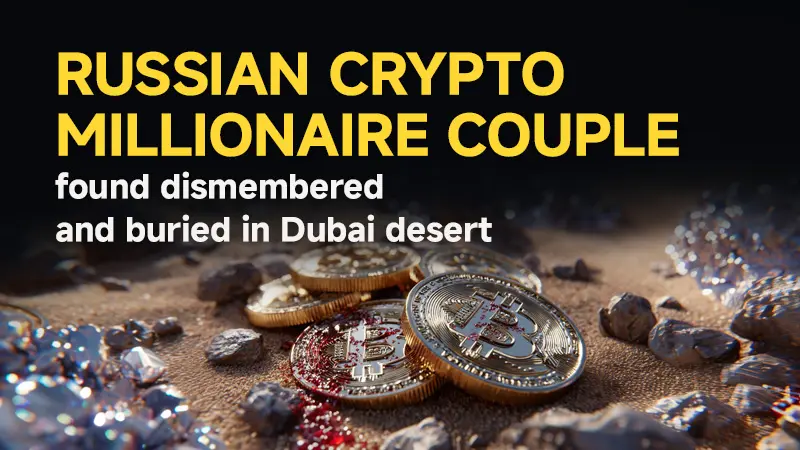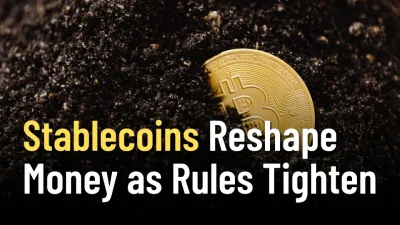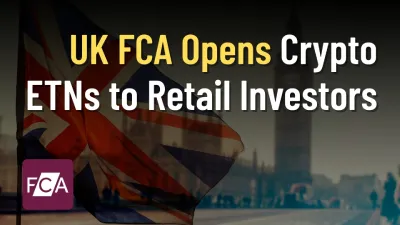简体中文
繁體中文
English
Pусский
日本語
ภาษาไทย
Tiếng Việt
Bahasa Indonesia
Español
हिन्दी
Filippiiniläinen
Français
Deutsch
Português
Türkçe
한국어
العربية
National Australia Bank (NAB) Blocks 270M Crypto Transfers!
Abstract:National Australia Bank (NAB) is taking measures to block payments to high-risk cryptocurrency exchanges, including Binance, as part of a broader effort to combat fraud and scams within the financial institution, joining other major banks in cracking down on digital currency.

National Australia Bank (NAB) is set to block payments to high-risk cryptocurrency exchanges, including Binance, starting Monday, as part of its efforts to combat fraud and scams within the financial institution.
This move reflects a broader crackdown on digital currency by major banks, which have observed an increasing flow of scammed funds into cryptocurrencies that are difficult to recover for victims. For Binance, this development adds further pressure to its operations following a regulatory raid on its offices and the ongoing global crackdown on the controversial exchange.
While NAB did not explicitly mention the targeted cryptocurrency exchanges, NAB executive Chris Sheehan stated that the blocks would impact “high-risk” platforms where scams are more prevalent. When asked about including Binance in the ban, he indicated that their approach would align with the industry.

Previously, the Australian Financial Review reported that Westpac and Commonwealth Bank had already begun blocking payments to Binance. At the same time, ANZ announced last month that it would prevent payments to specific high-risk cryptocurrency platforms. These measures will restrict Binance's ability to deposit and withdraw fiat money from local banks.
Additionally, Binance has lost its banking partner Cuscal, which facilitated payments via PayID and other methods, and the Australian Securities and Investment Commission has withdrawn its local derivatives license.
The increased scrutiny on Binance follows a lawsuit filed by the US Securities and Exchange Commission (SEC) alleging that the exchange and its CEO, Changpeng Zhao, knowingly violated laws and operated an illegal exchange.

In November, Changpeng Zhao's rivalry with FTX founder Sam Bankman-Fried intensified when he cast doubts on FTX's stability, leading to a sell-off in the company's tokens. This chain of events ultimately led to FTX's collapse and criminal charges against Sam Bankman-Fried, contributing to mounting regulatory pressure on the crypto industry.
As banks face increasing pressure to protect customers, NAB's Chris Sheehan highlighted that the bank's scam alerts have saved consumers $270 million through payment prompts and collaboration with telcos to combat text spoofing.
However, the House of Representatives economics committee has urged major banks to implement a system that mandates refunds for scammed customers, except in negligence cases. NAB CEO Ross McEwan expressed concerns that this approach would attract more scammers. At the same time, ANZ CEO Shayne Elliott stated that scam rates in the UK had risen faster than in Australia and cautioned that such a measure might reduce consumer vigilance against scams.

Chris Sheehan referred to such regulations as “short-sighted” and emphasized the importance of a partnership between banks, telcos, online platforms, customers, and the government to prevent such incidents. He argued that solely making banks accountable would not address the underlying criminal activities and long-term harm to society caused by the flow of funds into nefarious activities.
According to the ACCC (Australian Competition and Consumer Commission), crypto scams accounted for 7.1% of reported scams worth $3.1 billion in Australia last year.
Commonwealth Bank limited transfers to high-risk crypto exchanges in June, while Westpac banned its customers from transacting with Binance in May.
In April, Binance lost its Australian financial license following an investigation by the country's corporate watchdog.

Disclaimer:
The views in this article only represent the author's personal views, and do not constitute investment advice on this platform. This platform does not guarantee the accuracy, completeness and timeliness of the information in the article, and will not be liable for any loss caused by the use of or reliance on the information in the article.
Read more

Uniglobe Markets Review 2025: A Complete Guide to an Unregulated Broker
Uniglobe Markets claims to be an online trading company that offers many different types of investments, including foreign currency and raw materials. The company tries to attract traders by offering high leverage, different account options, and popular MetaTrader trading software. However, there is one major problem: the company does not have proper regulatory oversight. This creates serious concerns about the safety of clients’ capital and whether the company operates honestly. Read on to learn more about its regulatory status.

Russian crypto millionaire couple found dismembered and buried in Dubai desert
A gruesome case has emerged involving a Russian couple living in the United Arab Emirates who went missing in early October and whose remains were recently discovered in a desert near Dubai. Roman Novak, a self-styled cryptocurrency “millionaire”, and his wife Anna had last been seen travelling to a supposed investor meeting in the UAE, but according to investigators were instead abducted and murdered after a ransom plot failed.

Global Stablecoins Reshape Money Flow as Regulation Tightens
Stablecoins expand beyond dollar pegs to euro, yuan, and algorithmic variants, with regulatory acts like GENIUS shaping a new era of digital liquidity.

UK Opens Crypto ETNs to Retail Investors
The UK's financial watchdog has lifted a 4-year ban, allowing retail investors to trade crypto exchange-traded notes (ETNs) on regulated exchanges.
WikiFX Broker
Latest News
2 Malaysians Arrested in $1 Million Gold Scam Impersonating Singapore Officials
Exness Broker Expands in South Africa with Cape Town Hub
Fraud Mastermind Zhimin Qian Sentenced to 11 Years for $6.6 Billion Bitcoin Ponzi Scheme
Is FXPesa Regulated? Real User Reviews & Regulation Check
Almahfaza Broker – 2025 Review: Safe or Scam?
Uniglobe Markets Review 2025: A Complete Guide to an Unregulated Broker
INZO Broker No Deposit Bonus: A 2025 Deep Dive into Its Offers and Risks
Global Guide to Finding Forex IBs/Brokers — Share Your Pick and Win Big!
Consob Targets Political Deepfake “Clone Sites” and Unlicensed Platforms in Latest Enforcement Round
WikiEXPO Global Expert Interviews: Gustavo Antonio Montero: ESG in Finance
Currency Calculator



